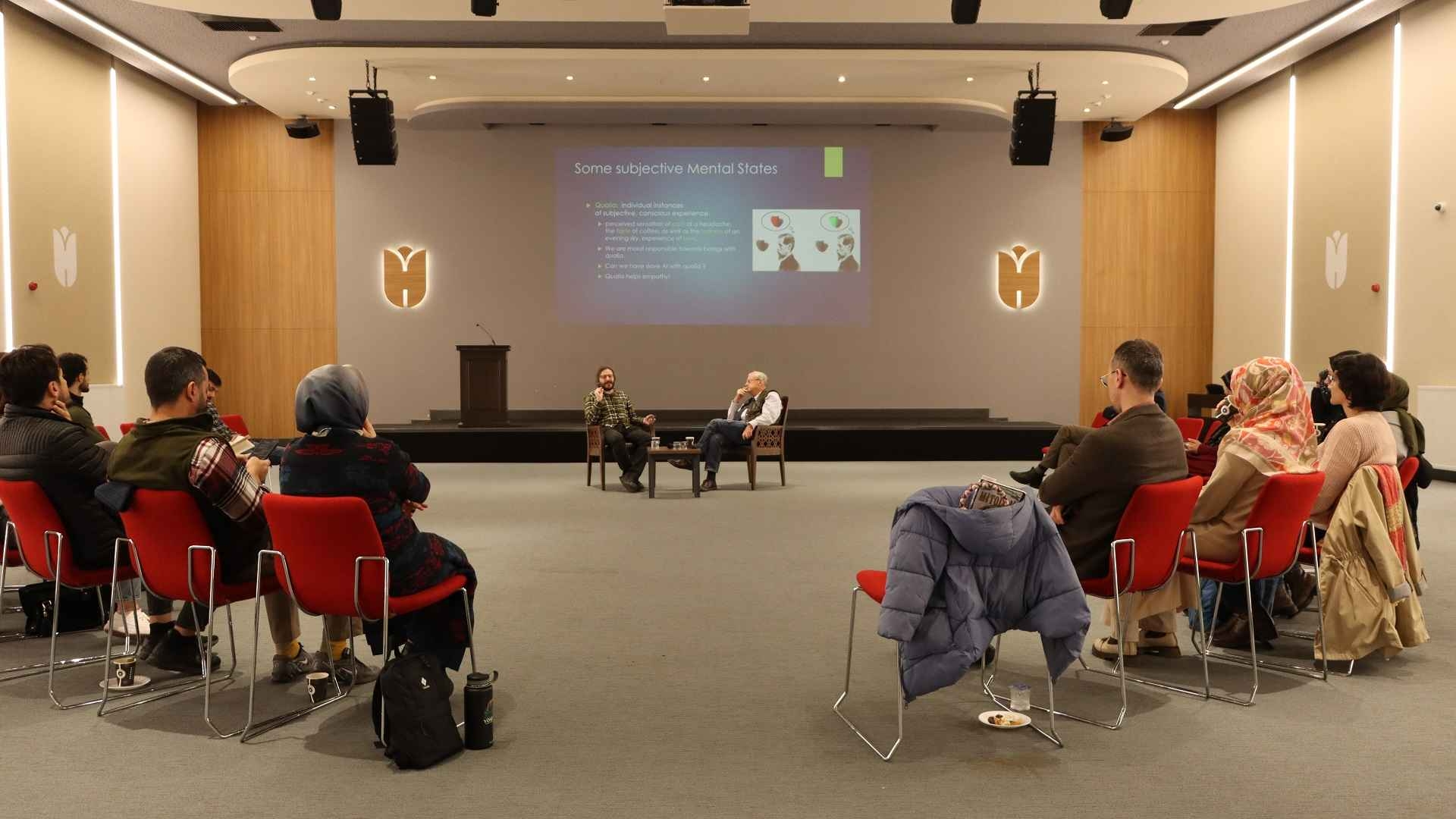


The third of the Wednesday Meetings series was held on January 3, 2024 at the Media and Events Center Event Hall with the participation of our Rector Prof. Atilla Arkan and our academicians. In the meeting, where a different topic was discussed every week based on modern times and the changing position of academia in ongoing innovations, this week, the question "Can Artificial Intelligence Fall in Love?" was discussed on the axis of philosophy, science and ethical values.
In the event moderated by Prof. Halil Berktay, Head of our Department of History and Assoc. Prof. Enis Doko, Head of our Department of Philosophy, Prof. Berktay talked about how artificial intelligence emerged as a "new technology" and penetrated a significant part of our lives in a very short period of time, and how its rapid entry into education and therefore academia brought with it a series of ethical questions and problems that had not been thought and discussed before.
Prof. Halil Berktay stated that as academics, they have started to see artificial intelligence as an increasingly individualized rival problem, and that this brings along questions such as whether artificial intelligences can connect to each other worldwide and create a super consciousness/brain, or whether human creativity can become secondary and even human beings can become slaves of artificial intelligence.
In his speech, Assoc. Enis Doko, who addressed the issue on the axis of philosophy and science as a philosopher and scientist, stated that the basis of philosophical discussions on artificial intelligence is the Latin word "qualia", which is defined as individual examples of conscious experience. In his speech, Assoc. Doko emphasized that just like the pain felt when a headache occurs, the feeling of compassion when a kitten is seen, love is ultimately evaluated within the scope of "qualia", which is the definition of what it looks or feels like to have mental states such as pain, seeing red, smelling roses, and that qualia is the most basic and powerful feature that distinguishes humans from artificial intelligence.
Doko stated that artificial intelligence, which will increasingly resemble a human being in the future with its perceptions, responses and reactions, but does not have any inner world to shape before transferring them to the outside world, is described as a "philosophical zombie" by philosophers, and that artificial intelligence, which cannot interact with the environment and cannot act, is significantly different from the human genus in this regard.
In the continuation of his speech, Assoc. Doko mentioned that the answer to the question "Do machines have an inner world?" is also directly related to the question "Can Artificial Intelligence Fall in Love?" and touched upon the philosophical and scientific debates that have emerged and are ongoing on this subject in the axis of dualism, panpsychism, determinism, biologism, functionalism and eliminationism movements and philosophical/scientific experiments such as "Chinese Room" and "Mary's Room".